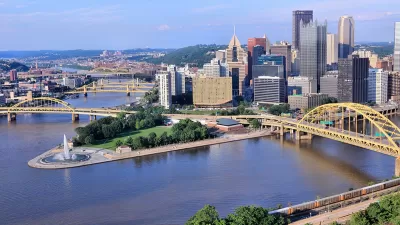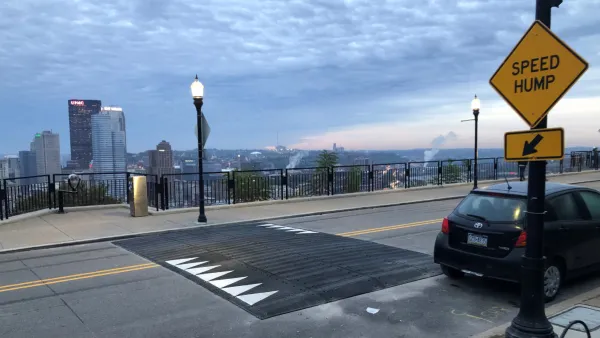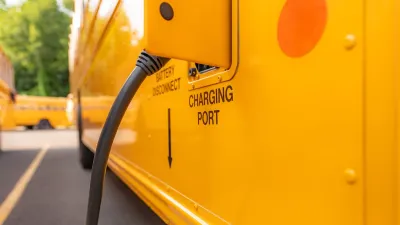The state of Pennsylvania has released Pittsburgh from the terms of Act 47, signaling a new era of fiscal security for the city, and a sign of home for the "Rust Belt."

"Fourteen years after entering a state program to restore its finances, the City of Pittsburgh has emerged from distressed status," reports Adam Smeltz.
State and local leaders gathered on Monday to formalize the city’s exit from Act 47, "which guided Pittsburgh back from the brink of bankruptcy." In effect, Act 47 "limited the city hall’s direct control over its budgets, establishing a recovery plan that cut costs, reduced the municipal workforce and managed long-term obligations such as debt and pension expenses. City finances have since swung from projected deficits to steady surpluses."
After demonstrating a stable fiscal situation over several years, the city has also put into place financial best practices to ensure fiscal health in the future.
This fiscal success if set against the ongoing redevelopment and revitalization of the city's urban core. Pittsburgh is frequently cited as an example of successful revitalization in Rust Belt cities, and Pittsburgh provides the Planetizen news feed a steady source of stories about large development investments:
- Almost a Billion Dollars of Redevelopment Investment Headed to Pittsburgh's South Shore (January 2018)
- Ferris Wheel Proposed With Big Mixed-Use Plans Near Downtown Pittsburgh (December 2017)
- Cap Park Plans Take Shape in Downtown Pittsburgh (December 2017)
- The Young History of Open Data Leadership in Pittsburgh (November 2017)
-
Three New Hospitals Slated for Pittsburgh (November 2017)
FULL STORY: 'Pittsburgh is back': City officially drops its financially distressed status

Planetizen Federal Action Tracker
A weekly monitor of how Trump’s orders and actions are impacting planners and planning in America.

Congressman Proposes Bill to Rename DC Metro “Trump Train”
The Make Autorail Great Again Act would withhold federal funding to the system until the Washington Metropolitan Area Transit Authority (WMATA), rebrands as the Washington Metropolitan Authority for Greater Access (WMAGA).

The Simple Legislative Tool Transforming Vacant Downtowns
In California, Michigan and Georgia, an easy win is bringing dollars — and delight — back to city centers.

The States Losing Rural Delivery Rooms at an Alarming Pace
In some states, as few as 9% of rural hospitals still deliver babies. As a result, rising pre-term births, no adequate pre-term care and "harrowing" close calls are a growing reality.

The Small South Asian Republic Going all in on EVs
Thanks to one simple policy change less than five years ago, 65% of new cars in this Himalayan country are now electric.

DC Backpedals on Bike Lane Protection, Swaps Barriers for Paint
Citing aesthetic concerns, the city is removing the concrete barriers and flexposts that once separated Arizona Avenue cyclists from motor vehicles.
Urban Design for Planners 1: Software Tools
This six-course series explores essential urban design concepts using open source software and equips planners with the tools they need to participate fully in the urban design process.
Planning for Universal Design
Learn the tools for implementing Universal Design in planning regulations.
Smith Gee Studio
City of Charlotte
City of Camden Redevelopment Agency
City of Astoria
Transportation Research & Education Center (TREC) at Portland State University
US High Speed Rail Association
City of Camden Redevelopment Agency
Municipality of Princeton (NJ)





























